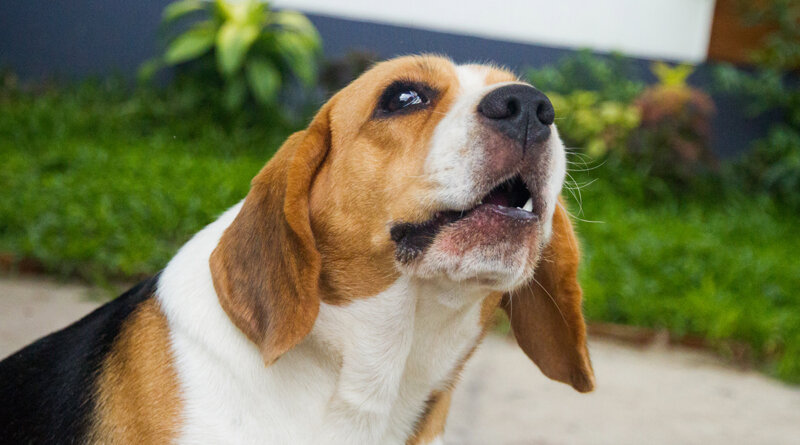Why Do Dogs Howl? | The Bark
Dear Bark: I’ve had my Beagle, Jet, for a couple of months, and we’re doing well together. However, his howling is becoming an issue. Do you think he’s afraid or unhappy when he howls? Is this something he’ll outgrow, or should I be working on changing the behavior now? And if so, how do I go about doing that?
Congratulations on your new dog, and kudos for your concern about what the howling may say about Jet’s emotional state. Dog howling is a long mournful sound very different from short, explosive barks and yelps or the high-pitched, nasal whine. Howls are one of the hardest dog vocalizations to interpret, largely because there are many answers to the question, “Why does my dog howl?” The first thing to do is attempt to figure out the cause in Jet’s case.
For the record, some of this tendency has a genetic basis. Beagles are among the dog breeds that are likely to howl, as are scent hounds of many types, who are well known for both howling and baying. Huskies are famous for their song-like howls. (Interestingly, people are split on whether the sound is miserable or a joy to hear.)
Why Do Dogs Howl?
Howling is a form of communication.
GET THE BARK IN YOUR INBOX!
Sign up for our newsletter and stay in the know.
When dogs howl it serves as an alert. Dogs may howl to let you know that there is something they want you to notice. It could be a visitor, another sound, a lost toy or anything else that has their attention. They may be excited, frightened or frustrated by the situation.
Howling can be an expression of pain, either physical or emotional.
Medical problems should always be explored as a possibility when a dog is howling, as physical pain can cause a dog to vocalize this way. Many dogs with separation anxiety will howl when left alone, conveying their deep emotional distress. Sometimes, the negative emotions—for example, boredom or annoyance—are less serious but still obviously unpleasant for the dog resulting in the dog howling.
Dogs howl in response to loud sounds, extended sounds.
Sirens, crying babies and singing can all trigger howling in dogs, though perhaps the most contagious sound is the howling of another dog (or wolf or coyote—really, any canid will do). Experts speculate that whether the sound is another dog howl or just similar enough in some way to get them going, dogs are joining the chorus. (I once had a dog who howled when I sang, and he seemed really distressed—no surprise there, as my singing is beyond dreadful.) Some dogs even howl at the tune of specific songs, like Law and Order.
This is as good a time as any to tell you that my dog sings along to the Law & Order theme song every time he hears it pic.twitter.com/4HNVPWrzmE
— Peter Schultz (@pete_schultz) March 19, 2020
Dogs may howl as a cry for attention.
And of course, giving attention in response to the howl is likely to make the howls more frequent.
How to Stop Dog Howling
Dogs rarely outgrow howling, but dogs who howl frequently can be trained to do so much less often, and to cease the behavior when asked. With careful observation of the circumstances that precede the dog howling, you may be able to figure out what is triggering it. That will give you a good opportunity to short-circuit the trigger and therefore, prevent the howling.
I recommend identifying and addressing the root causes and working on interrupting the behavior when it does happen.
After interrupting the dog, encourage him to stop by redirecting him to another activity, such as chewing, playing or training. Train him to stop to a cue such as “Enough” by giving him a treat, toy or chew toy when he stops howling after being asked to do so.
Many people who find the howls of dogs to be quite beautiful, but few of us want to hear it every day in our own homes at close range!




